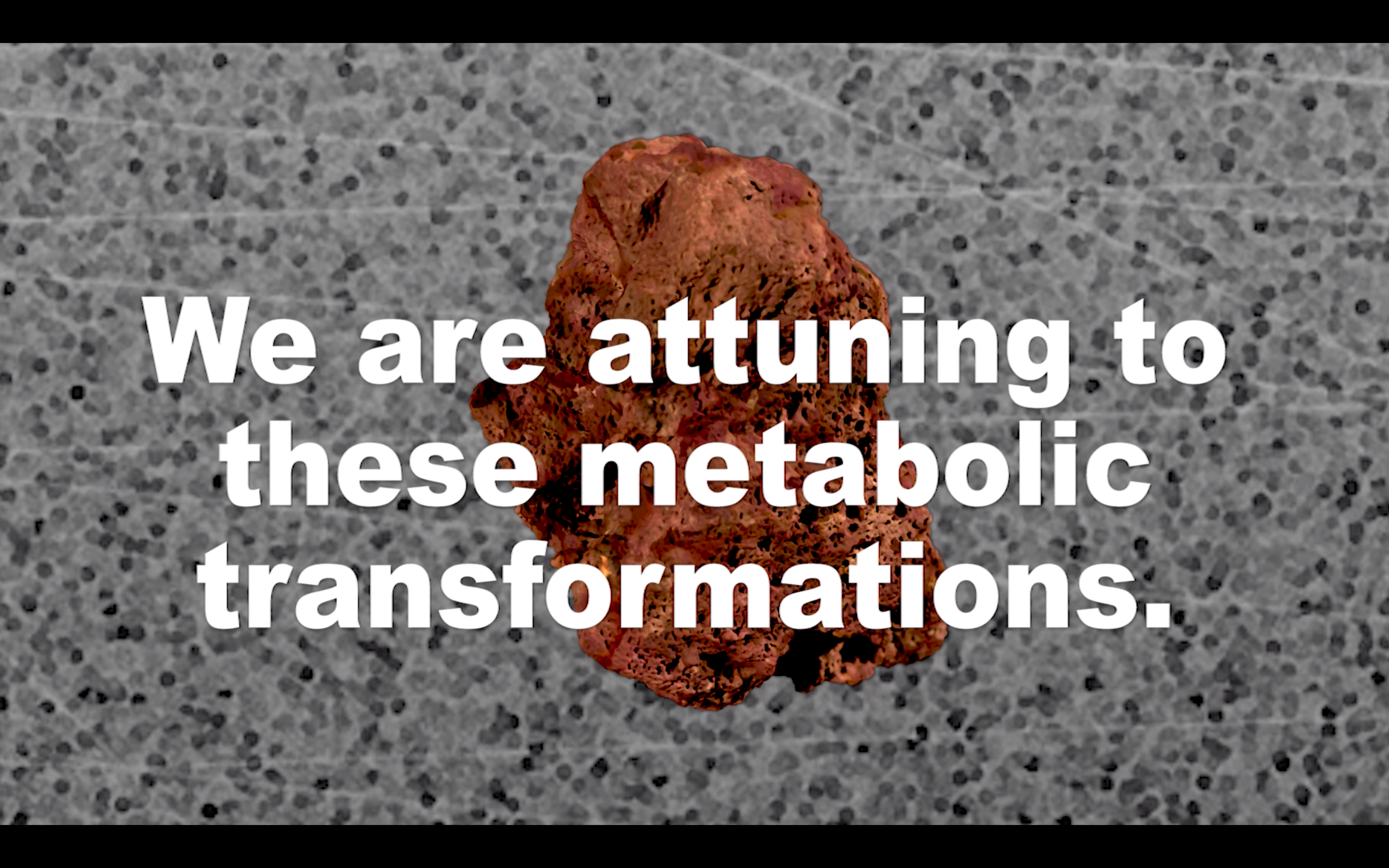
- This event has passed.
A Loose Million: reading, screening, and a hypnosis
December 1, 2019 5:00 pm - 7:00 pm

Caitlin Berrigan’s Imaginary Explosions draws upon geology, embodied knowledges, and technoscience to investigate how deep time and interspecies communication might assist us in radical planetary transformation. The long-term project is composed of episodic videos, sculpture, and an artist book, calling into collaboration artists and scholars whose real-life work pushes the limits of science and culture. Departing from the present into a speculative fiction, the cosmology explores what other presents and futures become possible once we begin to think beyond the framework of the human.
At Human Resources, Berrigan’s work offers a prompt for invited artists and scholars, whose research similarly takes up queer and decolonial paradigms in relation to place and landscape, to share their own writing and video in dialogue. Urgent considerations and connections around ecological catastrophes, biopolitics, and structural violence, and their impact on individual and collective bodies emerge as the presentations consider how we can prioritize other ways of conceiving and inhabiting our world.
Caitlin Berrigan will read from her book Imaginary Explosions and further texts; Patrick Staff will read their poem On Venus; Sara Mameni will read from her book manuscript Crude Aesthetics; Lily Benson will lead an archaeological hypnosis session; Suzy Halajian will read her text Water, Trash, and Protest; Daniela Lieja Quintanar will read from Carolina Caycedo’s Serpent River Book, followed by a screening of Caycedo’s video, Apparations.
Organized by Suzy Halajian
About the Participants
Lily Benson is a filmmaker, visual artist, and hypnotist. Her work examines feminist history and reconstructs it into new narrative forms. She currently works as a creative adviser at The New York Times and is the co-founder of Cinema COBRA, a curatorial platform for expanded cinema. Lily is on a mission to make our world a more experimental place.
Caitlin Berrigan is an artist, writer, and researcher who works across performance, video, sculpture, and text to engage with the intimate and embodied dimensions of power, politics, and capitalism. Imaginary Explosions is the subject of a recent solo show at Art in General in New York, and as an artist’s book published by Broken Dimanche Press in 2018. She is affiliated with the PhD-in-Practice at the Academy of Fine Arts in Vienna, and NYU Technology, Culture and Society.
Carolina Caycedo is a London-born Colombian artist, living in Los Angeles. Her work contributes to the construction of environmental historical memory as a fundamental element for non-repetition of violence against human and non-human entities, and generates a debate about the future in relation to common goods, environmental justice, just energy transition, and cultural biodiversity.
Suzy Halajian is a curator and writer based in Los Angeles. With Anthony Carfello and Shoghig Halajian, she is co-editor of Georgia journal. Her work begins at the intersection of art and politics, treating image making as steeped in colonial pasts and modern surveillance states, and her research centers on the legacies of trauma and conflict in experimental documentary and performance practices from the Middle East and North Africa and their diaspora.
Sara Mameni is the director of Aesthetics and Politics program and faculty in the school of Critical Studies at California Institute of the Arts. Her current research explores biopolitics, racial discourse in the Anthropocene, post-humanist aesthetics, and the geo-ecological age of petroleum.
Daniela Lieja Quintanar is a curator at Los Angeles Contemporary Exhibitions (LACE) and part of the curatorial team of MexiCali Biennial 2018-19. She works between Los Angeles and Mexico, emphasizing contemporary art and curatorial practices that explore the politics and social issues of everyday life.
Patrick Staff is a Los Angeles-based interdisciplinary artist working with text, moving image, and performance. Their work cites the ways in which history, technology, capitalism, and the law have fundamentally transformed the social constitution of our bodies today, with a particular focus on gender, debility, and biopolitics.